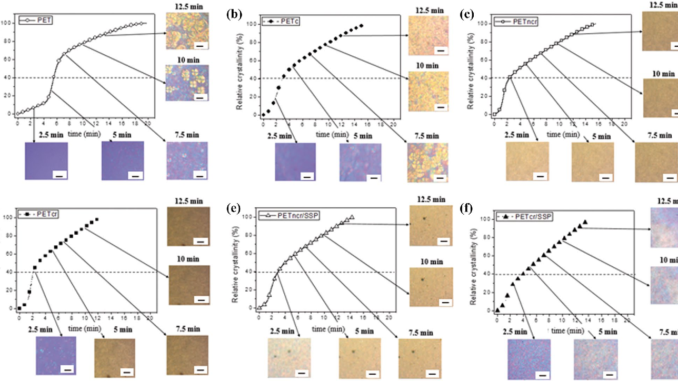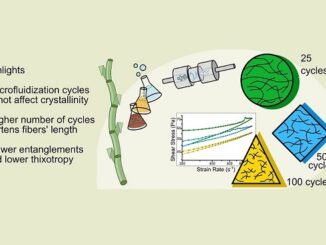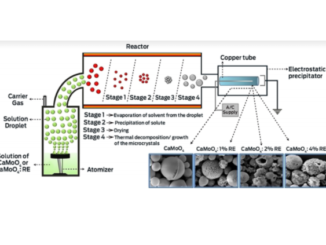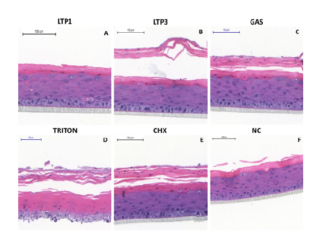
Reprocessing and Solid State Polymerization on Contaminated Post-consumer PET: Thermal and Crystallization Behavior
Abstract: This investigation deals with the exposition of poly (ethylene terephthalate) to a series of surrogates following protocol recommended by United States Food and Drugs Administration. The samples presented different molecular characteristics associated to the type of process, such as reprocessing by extrusion and solid state polymerization (SSP). The nonisothermal, quiescent and shear flow crystallization for these samples were studied using differential scanning calorimetry, polarized light optical microscopy and rheometry technique. The quiescent results show that the higher the molar mass, the slower is the rate of the crystallization process. The samples that undergone the SSP process do not have influence with the presence of contaminants as this process results in higher level of decontamination. The shear-induced crystallization show that the presence of contaminants significantly reduces the number of entanglements, increasing mobility of the chains and thus the entropy of the system. Despite the significant change in the crystallization behavior, the results of the nonisothermal analysis corroborate the effects of the contamination, recycling and SSP processes on the crystalline nature of PET. The evaluation of the crystallization characteristics, especially in non-quiescent conditions, is extremely important for the prediction of the physicochemical properties and can modify the processing characteristics and the final applicability.
Author(s): Fitaroni, LB; de Oliveira, EC; Marcomini, AL; Paranhos, CM; Freitas, FL; Cruz, SA
JOURNAL OF POLYMERS AND THE ENVIRONMENT
Early access: OCT 2019
DOI: 10.1007/s10924-019-01579-9




